Vernon Duke (Vladimir Dukelsky) (1903-1969) arrived in New York in 1921. He, his mother, and his brother had been living in Kiev and fled Russia and the Russian Revolution, which began in 1917, first going to Constantinople before continuing to New York. He had been admitted to the Kiev Conservatory at the age of 11, where he became a student of Reinhold Glière; he was there at the same time as Sergei Prokofiev (1891–1953), a fellow student who became his lifelong friend and mentor.
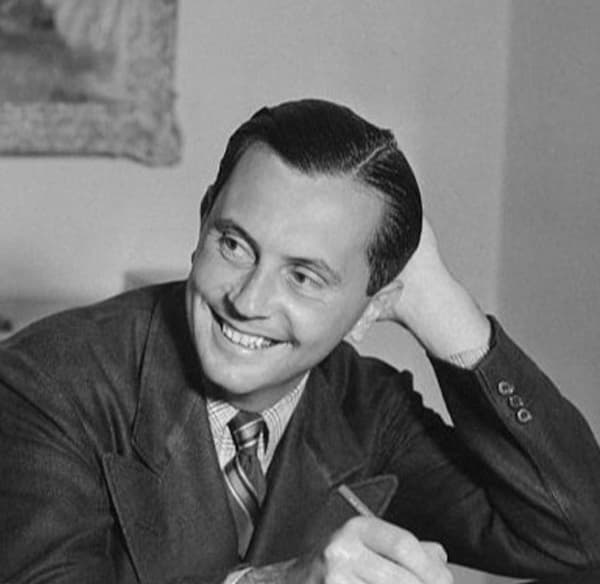
Vernon Duke in 1937
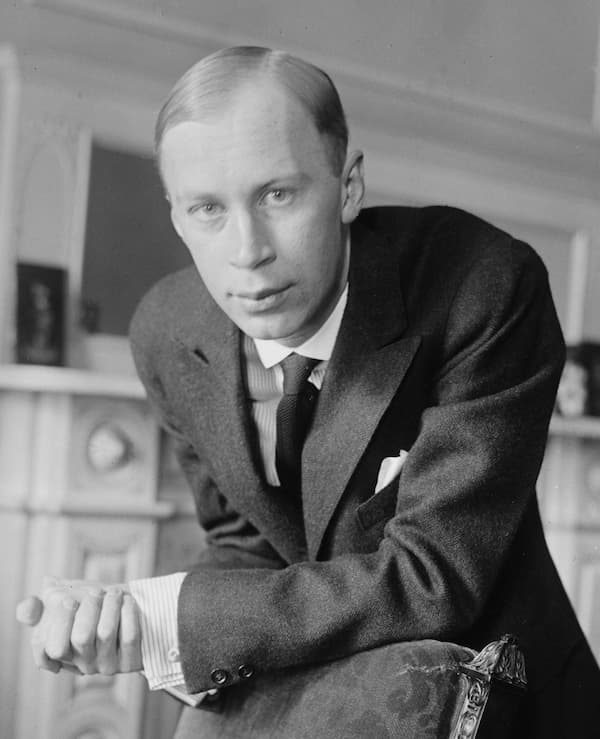
Sergei Prokofiev, ca 1918
His talent quickly brought him to the attention of pianist Arthur Rubinstein and composer George Gershwin. It was Gershwin to convinced him to shorten his name from Vladimir Dukelsky to Vernon Duke to ‘Americanize’ it. He used both names until 1955: Vernon Duke for his pop music and Vladimir Dukelsky for his classical music (and Russian poetry).
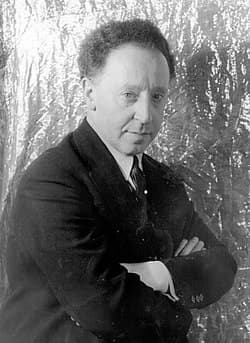
Carl Van Vechten: Arthur Rubinstein, 1937
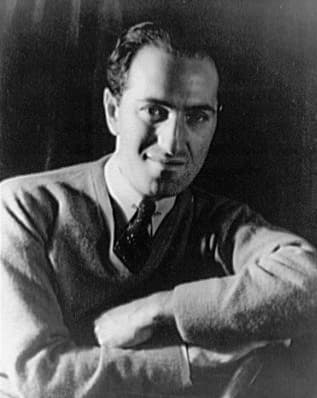
Carl Van Vechten: George Gershwin, 1937
His first major work in America was a commission by Rubinstein for a ‘one-movement piano concerto, pianistically grateful and not too cerebral’, and the 19-year-old responded with his Concerto in C for Piano and Orchestra. For various reasons, the performance never occurred: Dukelsky never orchestrated the work, and it wasn’t until 1998 that the conductor and pianist Scott Dunn was given permission to orchestrate it. It had its premiere in 1999 for the Gershwin Centennial Concert at Carnegie Hall.
Dukelsky wrote his Cello Concerto in 1924, on commission from Serge Koussevitzky (conductor of the Boston Symphony Orchestra) and the Russian cellist Gregor Piatigorsky. Due to delays to Dukelsky’s service in the US Coast Guard, the war, and other things, the work didn’t receive its premiere until 1947. Koussevitzky conducted the BSO, and Piatigorsky was the soloist. Dukelsky had worked with Piatigorsky on the cello part and the overall shape of the work.
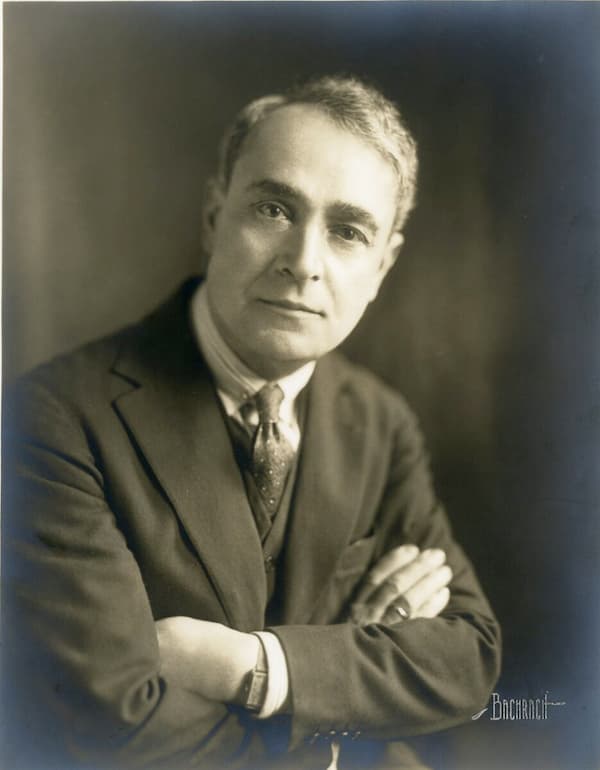
Serge Koussevitzky
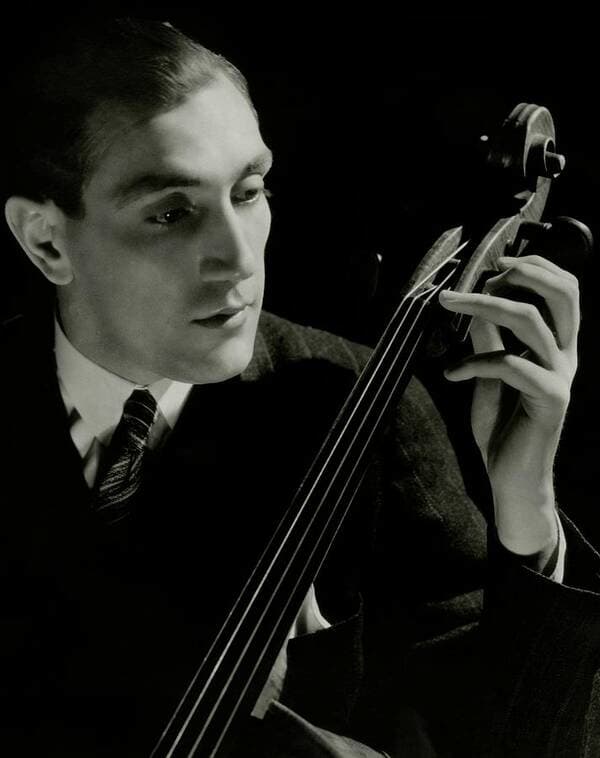
Frances McLaughlin-Gill: Gregor Piatigorsky
Written at the same time as the Cello Concerto was Dukelsky’s Homage to Boston, a work for solo piano. It bears a dedication ‘to the members of the Boston Symphony Orchestra’. In 7 short movements, we travel around Boston, from the Charles River (Maestoso) to the Boston Common (Mediativo).
Vernon Duke: Homage to Boston – I. Charles River: Maestoso (Scott Dunn, piano)
Vernon Duke: Homage to Boston – II. Boston Common: Mediativo – Più mosso (tempo giusto) (Scott Dunn, piano)
Our trip around the city is interrupted by a brief love affair with Molly – pensive and loving.
Vernon Duke: Homage to Boston – III. Molly: Andantino con moto (Scott Dunn, piano)
An unnamed Poet and his Wife (Poco Pomposo) stride around in their pride.
Vernon Duke: Homage to Boston – IV. The Poet and His Wife: Poco pomposo (Scott Dunn, piano)
A trip to the Ritz for dinner and a waltz around the salon.
Vernon Duke: Homage to Boston – V. Dining at the Ritz: Tempo di Valse de Salon (Scott Dunn, piano)
We peek in at his friend Sergei Prokofiev at Louisburg Square with a charming gavotte that takes us back in time to the pre-Revolutionary days in Russia, perhaps.
Vernon Duke: Homage to Boston – VI. Prokofieff in Louisburg Square: Quasi gavotte (Scott Dunn, piano)
We close with the Midnight Train (Mechanicamente), which carries us off again. The chuffing of the train gradually builds until we are flying down the tracks.
Vernon Duke: Homage to Boston – VII. Midnight Train: Mecanicamente (Scott Dunn, piano)
Vernon Duke, the pop music composer, wrote music that was recognised at the time as outstanding, with highly original harmonies and sophisticated lyrics. He wrote a number of songs that have become jazz standards, including April in Paris (words by E.Y. Harburg), I Can’t Get Started (words by Ira Gershwin), and Autumn in New York (words and music by Vernon Duke).
For more of the best in classical music, sign up for our E-Newsletter
